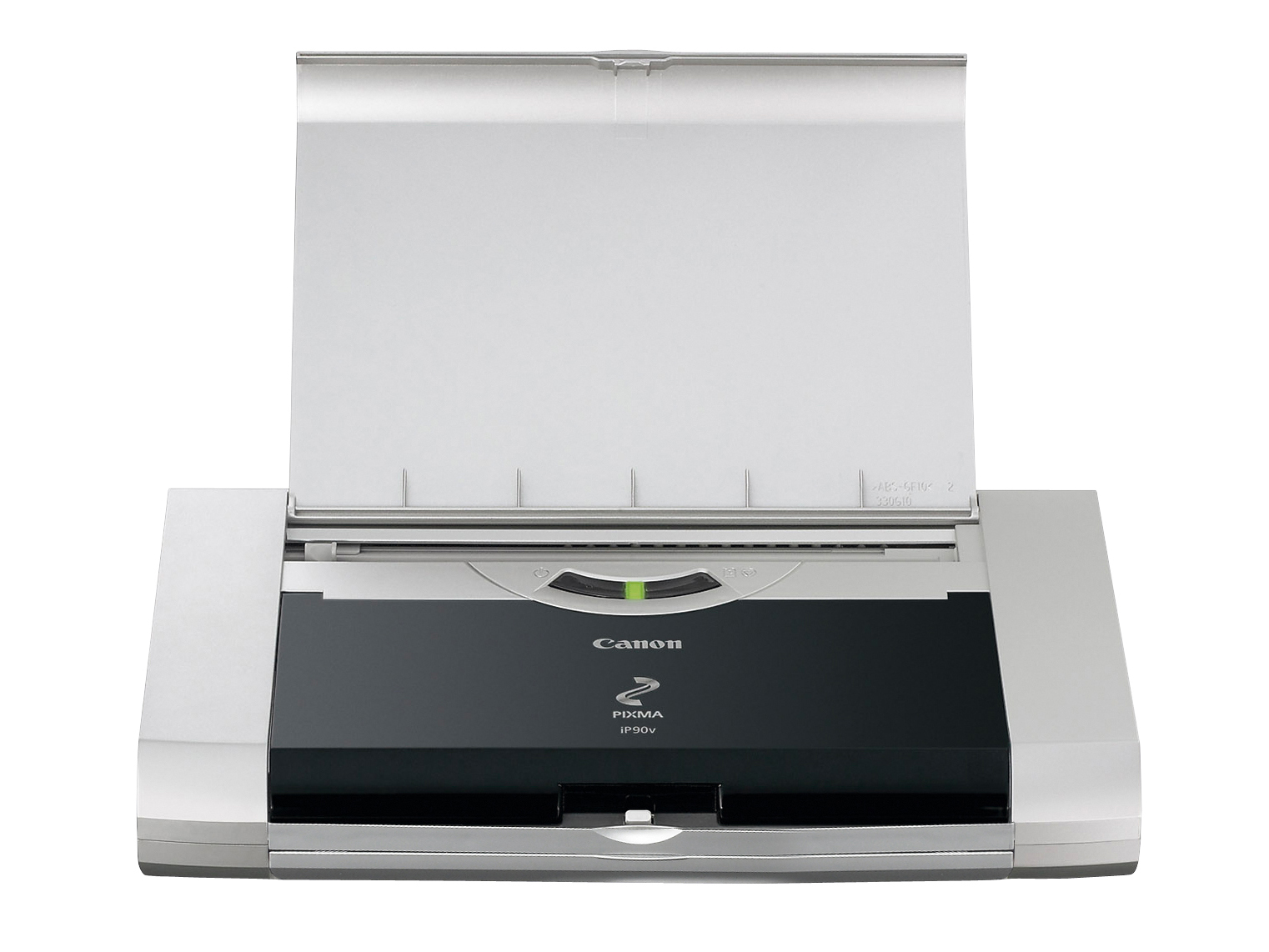TechRadar Verdict
A good choice for portable printing, but you pay for the privilege
Pros
- +
Highly compact and portable
Rechargeable battery
Cons
- -
No paper tray
Quite slow
Pricey
Why you can trust TechRadar
Canon has played an important role in the development of the mobile printer market, having produced a range of compact devices.
The iP90V has a rechargeable battery you can use when you haven't got mains power. The battery is a 2000mAh Li-Ion unit that looks like the sort of thing you'd find on a thin and light laptop and is an add-on to the basic iP90. The battery housing doubles as a charging unit and carries three LEDs to indicate battery condition.
The portable nature of the iP90v has led Canon to use a slender design that results in a 2.2kg weight. However, this has a number of consequences, such as the lack of an output tray on the front of the device - the finished print simply drops on to your desk.
There's no LCD screen or memory card slots and the iP90V doesn't have any options that allow you to correct or enhance photos.
However, the features and functions it does include more than make up for this. Canon has seen fit to include an infrared port, so you can print from a phone or PDA, but we would have preferred to see Bluetooth made an option too.
It is clear that Canon intends you to print directly from your digital camera using the PictBridge port on the side of the printer. We feel that you'll do far better to print from your laptop, as that will allow you to use Canon's exemplary software, and you'll still get the benefit of mobile printing, far from any mains socket.
The minimalist look means the twin cartridges are rather small, so even though they are fairly cheap, you can expect to pay 20p for each 6 x 4-inch photo. Print speed is relatively slow, and that's not something we often say about a Canon, and while the print quality is good, it's not great.
Sign up for breaking news, reviews, opinion, top tech deals, and more.
The Canon iP90v is a great choice for those who need to print regardless of location, but there are cheaper solutions.
Tech.co.uk was the former name of TechRadar.com. Its staff were at the forefront of the digital publishing revolution, and spearheaded the move to bring consumer technology journalism to its natural home – online. Many of the current TechRadar staff started life a Tech.co.uk staff writer, covering everything from the emerging smartphone market to the evolving market of personal computers. Think of it as the building blocks of the TechRadar you love today.
